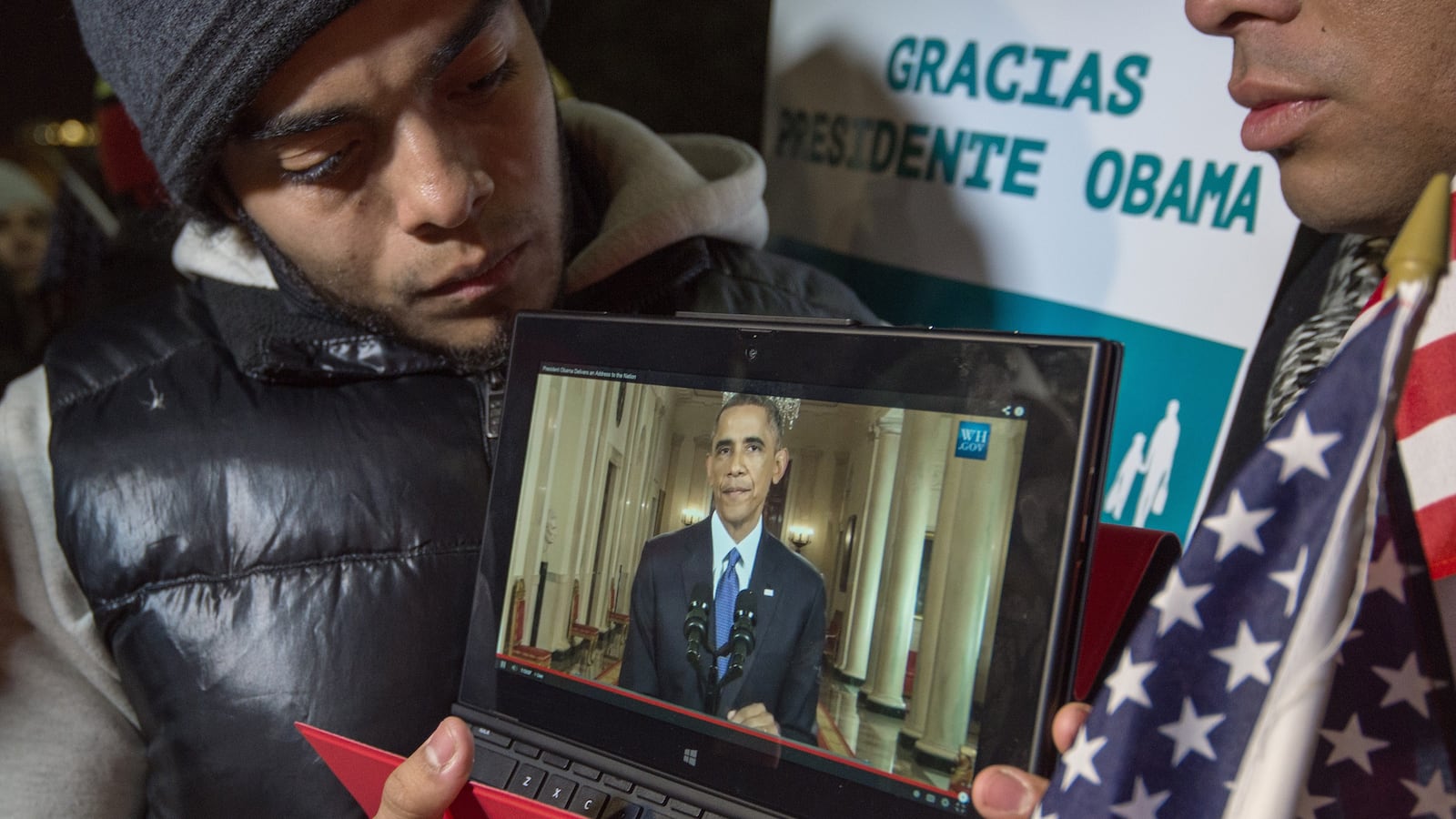On several occasions over the past few years, President Obama has claimed he didn’t have the legal authority to do pretty much exactly what he told the nation Thursday night he’s going to do on immigration law and policy.
Indeed, when pressed on why the administration wasn’t enacting the law enforcement policies he now has announced the federal government will pursue, he responded that to do so would require him to act like an emperor or king rather than a mere executive faithfully carrying out the laws passed by Congress.
“The problem is that, you know, I’m the president of the United States. I’m not the emperor of the United States,” he said. “My job is to execute laws that are passed, and Congress right now has not changed what I consider to be a broken immigration system. And what that means is that we have certain obligations to enforce the laws that are in place, even if we think that in many cases the results may be tragic.”
So does Obama have the legal authority to direct the federal government to enact the immigration law policies he now says the government will pursue? And if the answer to that question is yes, why was Obama claiming otherwise until quite recently?
The answers to these questions are “almost certainly yes” and “the dysfunctional nature of the American political system regularly requires presidents to say things they know aren’t true.”
It’s inevitable in a legal system such as ours, in which lawmaking is technically confined to one branch of government while the execution of those laws is placed in another, that a certain amount of informal lawmaking is going to end up happening in the latter area.
Congress enacts the laws, but deciding how to go about executing those laws by necessity requires the exercise of practical discretion. Enforcing the laws on deportation is a clear example. It’s impossible for the executive branch to deport more than a small fraction of the people the law says ought to be deported. Congress hasn’t authorized anything like the kind of spending that would be necessary even to begin to approach that goal, so the executive branch has to decide how best to go about pursuing partial enforcement.
In practice, this is known as exercising prosecutorial discretion, which is integral to every facet of the American justice system. Now it’s true that, as part of its commitment to execute the laws faithfully, the executive must enact discretionary policies that reflect the goals congressional legislation is intended to advance. Nor can the administration undertake actions—such as granting citizenship or permanent legal status to immigrants—which Congress has explicitly reserved to itself.
But these limits still leave a wide range of discretionary options open to the executive branch, and the federal courts have historically taken the view that the executive has great latitude in interpreting and enforcing federal law. So the sorts of policy changes Obama announced Thursday night would, if challenged in court, be upheld as legal.
Why, then, was the president claiming otherwise until recently? One implausible explanation is that he hadn’t studied the issue closely and changed his mind after government lawyers laid out the case to him for executive action. This is more or less the line the White House is now giving out, in a mealy-mouthed way, and it is particularly incredible given Obama’s former life as a constitutional law professor.
The real reason is surely far more prosaic: Obama claimed he didn’t have the power to do things he had the power to do because the administration calculated that it was politically expedient for him to do so. By claiming that his hands were tied, the president hoped to put more pressure on Congress to pass an immigration reform bill, which would produce longer-term results than executive orders.
The gambit failed, and now the administration is being forced to try to finesse the president’s fairly unambiguous public flip-flop on the issue.
Obama’s real excuse, if he were to be candid on the issue—an option not available to him because of the same practical considerations that led him to engage in these sorts of tactics in the first place—is that it’s extremely difficult to get anything done in the American political system, for structural reasons that have nothing to do with the characteristics of particular presidents or legislatures.
The immigration reform bill the president favors, for instance, has passed the Senate and is apparently supported by a majority of current House members. But it can’t pass the House because the Tea Party wing of the GOP is holding the House Republican leadership hostage on immigration.
This is yet another illustration of how, as contemporary American politics becomes increasingly ideologically coherent, the many barriers to enacting legislation, aka governing, become increasingly difficult to leap.
Under these circumstances, the kind of unilateral executive action Obama is undertaking will become more and more common.






